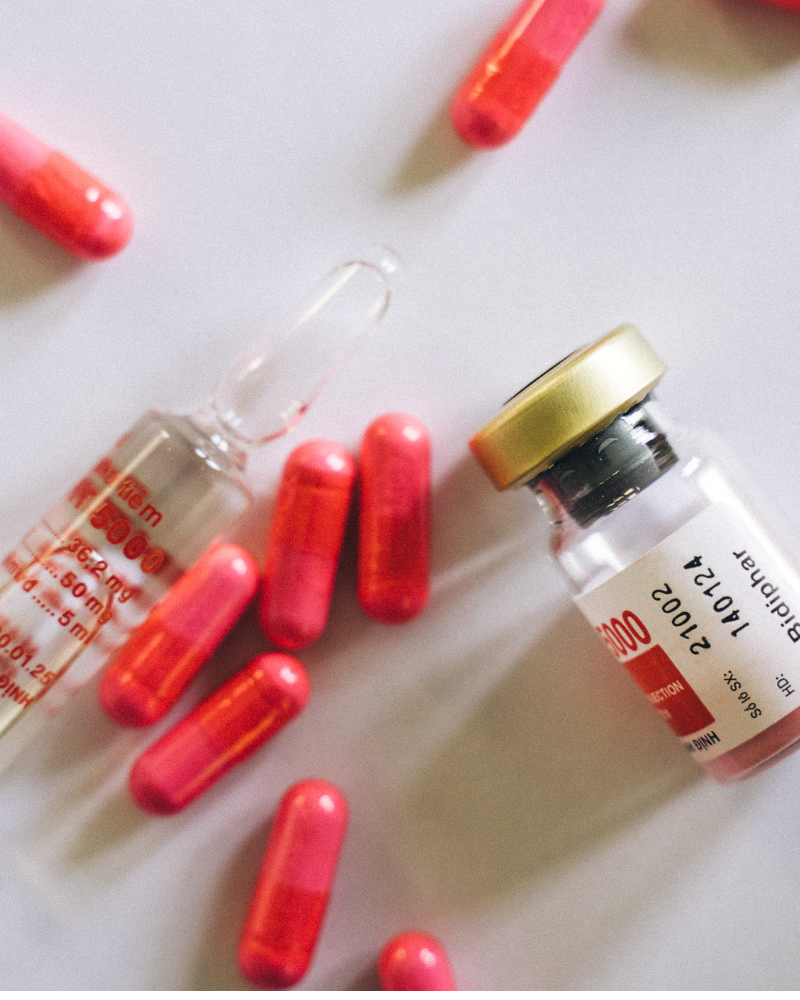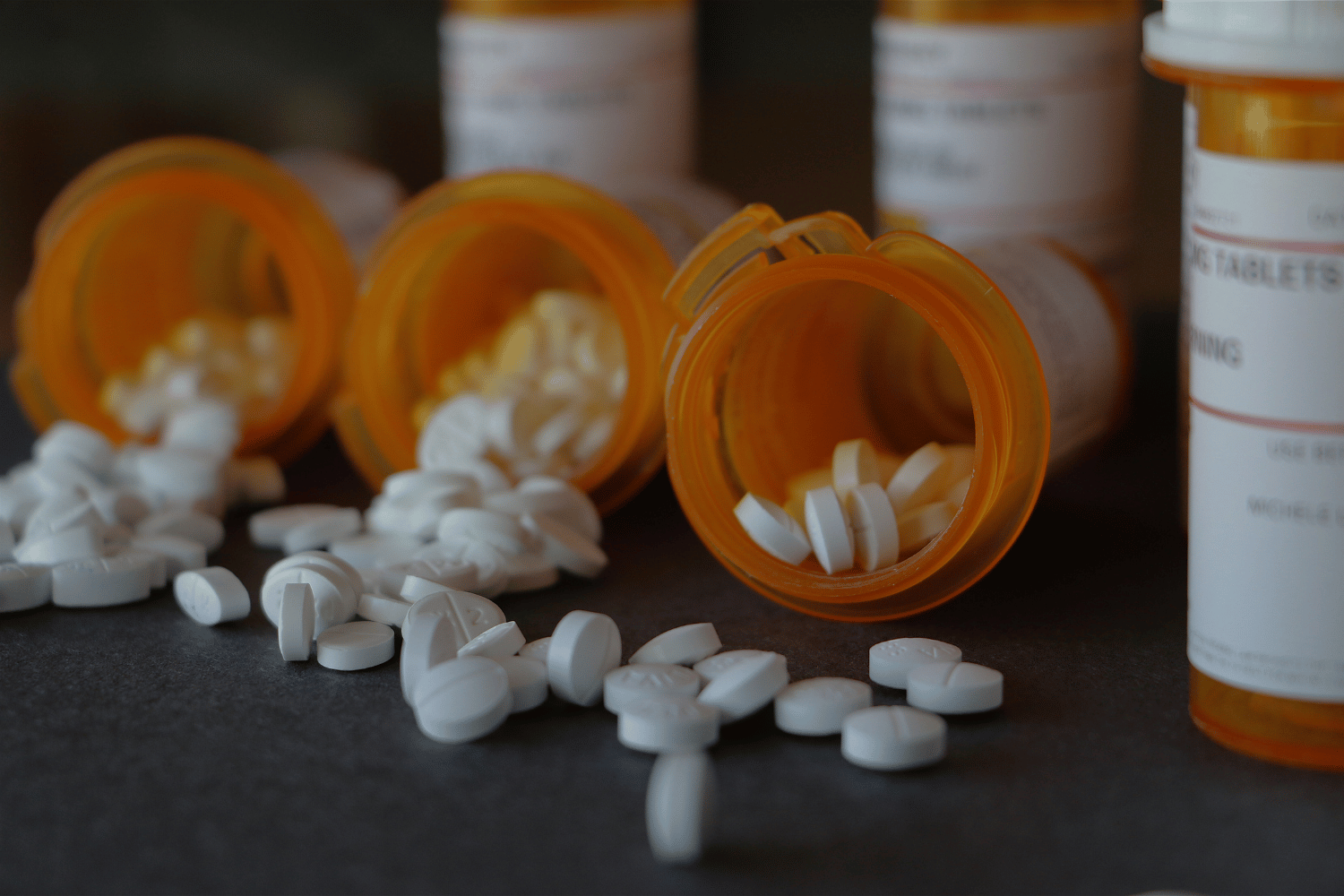Codeine is a well-known medication, primarily used as a cough suppressant and pain reliever. What many people don't realize is that, in high doses, it can produce entirely different effects—ones that make it especially popular among young people and within certain subcultures. In recreational settings, codeine is often taken to relax, unwind, or mentally check out for a while. The so-called "Lean" mixture is particularly popular, where codeine-containing cough syrup is combined with soda and sometimes candy. However, it is far from as harmless as it sounds. The risk of developing a dependency is high, and the transition from "occasional use" to "can't do without it" happens faster than most expect. Precisely because codeine is legal, many people underestimate the risks involved.
Codeine poppy as a drug
"Codein Knoll" refers to the long-established brand Knoll Pharmaceuticals. This company produces, among other things, medications containing codeine, which are actually intended for medical use. Unfortunately, these preparations are often misused—both by patients who can no longer control their intake and by people who deliberately use them as a drug. The reason "Codein Knoll" is mentioned so often is that such products were available in pharmacies for a long time and were considered particularly "pure." However, caution is advised: even if the brand sounds reputable, the misuse of codeine is anything but harmless. Its availability may make it easy to obtain the substance, but the health consequences are just as serious as with other opioids.


Codeine as a Drug: Effects and Dangers
The effects of codeine depend greatly on the dosage. In small amounts, it relieves pain or soothes a persistent cough. However, at higher doses, codeine reveals a completely different side. Many users report:
• a feeling of deep relaxation,
• mild euphoria,
• and the sense of being able to escape everyday life for a while.
Sounds tempting? Unfortunately, these effects come with significant risks. The body quickly becomes accustomed to the substance, and the dose must be increased continually to achieve the desired effect. However, the more you take, the greater the risk of serious side effects such as breathing problems, nausea, and disorientation. Particularly dangerous is the fact that an overdose can be fatal—often because breathing stops and the body is no longer supplied with oxygen.
Codeine as a drug: Side effects that many underestimate
If you misuse codeine, you should also be aware of the side effects, which often outweigh the desired effect. In addition to the typical calming and relaxing effects, many users also experience unwanted side effects:
• Drowsiness and extreme fatigue,
• Dizziness and disorientation,
• Constipation or other digestive issues,
• And in severe cases, respiratory depression.
The risks increase significantly when codeine is combined with other substances such as alcohol or sedatives. This combination can intensify the depressant effects on the central nervous system and drastically increase the risk of respiratory arrest. Additionally, long-term use of codeine not only poses a risk of physical harm, but can also lead to psychological problems such as anxiety, depression, or dependence.
Codeine as a drug: How dangerous is the dose?
When taking codeine, the dose determines whether it is used “safely” or becomes life-threatening. Therapeutic doses are often between 20 and 50 milligrams, for example to relieve cough. However, those who use codeine recreationally quickly exceed this limit and reach 100 milligrams or more—amounts that are very hard for the body to handle. At a certain dose, breathing can become so suppressed that it may stop completely. What makes it especially dangerous is that everyone reacts differently, depending on age, weight, and pre-existing conditions. Some people seem to tolerate high doses without problems, while others are at risk even with smaller amounts. That’s why using codeine as a drug is a risky gamble with your health.

Codeine as a drug: What does consumption really cost?
If you want to buy codeine legally at a pharmacy, you need a prescription—without a doctor's order, access is significantly restricted. The situation is different on the black market. Here, anything containing codeine is traded, from cough syrup and tablets to capsules. Prices can vary widely. Especially in circles where codeine use is popular, costs can rise quickly. However, beyond the financial costs, there are far more serious "prices" to pay:
• Physical health suffers due to long-term effects such as organ damage or breathing problems.
• Psychological dependence can dominate your entire life and lead to social isolation.
• The risk of consuming contaminated or counterfeit products is high and can be life-threatening.
In the end, users pay with their quality of life—and in some cases, with their lives. This is a risk that should never be underestimated.


